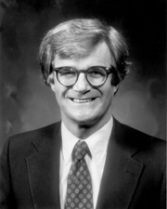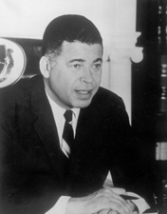Mark Begich and Sean Parnell Join Small Group in Defeat
Over the last 50 years, just five pairs of incumbent governors and U.S. Senators from different political parties in the same state have been defeated

Parnell conceded over the weekend to independent Bill Walker and Begich did the same on Monday to Republican nominee Dan Sullivan.
And while the dual incumbent losses in these high profile races were a first in Alaska, the outcome was also a rarity on the national scene.
A Smart Politics study finds that the losses by Mark Begich and Sean Parnell in Alaska mark just the fifth time over the last 50 years in which a state’s sitting governor and U.S. Senator from different political parties were defeated in the same cycle.
From 1964 through 2014, a total of 105 governors lost their reelection bids along with 125 U.S. Senators.
However, it has been 24 years since the last time one of each from two different parties in the same state fell short of holding their seats in the same cycle.
In 1990, the “two Rudys” from Minnesota both lost their reelection bids: DFL Governor Rudy Perpich and Republican U.S. Senator Rudy Boschwitz.
Both were experienced politicians who had served multiple terms.
Perpich was seeking his fourth nonconsecutive term that cycle after victories in 1982 and 1986. Perpich had also served a shade over two years from December 1976 to January 1979 after getting a promotion from lieutenant governor when Wendell Anderson resigned to become appointed (by Perpich) to the U.S. Senate after Walter Mondale won the vice-presidency.
Perpich was denied a fourth term in 1990, losing by 3.4 points to Republican Arne Carlson.

Even worse for Boschwitz, he was the only member of the U.S. Senate who lost a reelection bid that cycle.
Eight years prior, in 1982, Nevada saw both incumbents lose in gubernatorial and U.S. Senate elections.
In the race for governor, one-term Republican Robert List was soundly defeated by 11.7 points by Democratic State Attorney General Richard Bryan.
Just down the ballot, four-term Democratic U.S. Senator Howard Cannon lost by 2.4 points to former Republican state senator Chic Hecht.
Cannon was one of just two Senators to lose reelection that cycle (along with New Mexico Republican Harrison Schmitt).
The only other cycle over the last 50 years in which a state’s governor and U.S. Senator from different parties both lost reelection came in 1978 – and it happened twice: in Massachusetts and New Hampshire.
In the Bay State, one-term Governor Michael Dukakis was defeated in the September Democratic primary by former football player Edward King.

Tsongas, a two-term U.S. Representative from Massachusetts’ 5th CD, defeated Brooke by 10.2 points.
(Brooke turned 95 years old last month and is the oldest living current or former U.S. Senator – 20 months older than Ohio Democrat John Glenn).
In New Hampshire, two experienced politicians fell that cycle in very competitive contests.
Three-term Republican Governor Mel Thomson lost to Hugh Gallen by 4.0 points. Meanwhile, three-term Democratic U.S. Senator Thomas McIntyre lost by just 2.2 points to professional pilot Gordon Humphrey.
Two weeks ago in Alaska, Sullivan ended up defeating Begich by 2.1 points while Walker beat Parnell by 2.2 points – the closest spread between the two races among the four such elections mentioned above in which both incumbents were defeated in the general election.
As rare as it has been for a state’s governor and U.S. Senator from different political parties to be booted out of office in the same cycle, it may be surprising to learn it has not happened much more frequently for officeholders from the same party.
That has happened only a half-dozen times over the last 50 years, with both incumbent defeats coming in the general election four times:
● 1972 Delaware: One-term Republican Governor Russell Peterson lost to Sherman Tribbitt and two-term GOP U.S. Senator J. Caleb Boggs was defeated by Joe Biden.
● 1974 Colorado: Republican Governor John Vanderhoof was beaten by Dick Lamm while two-term GOP U.S. Senator Peter Dominick lost to Gary Hart. Note: Vanderhoof was elected lieutenant governor, but succeeded John Love in 1973 when Love was appointed by Richard Nixon to the National Energy Policy Office.
● 1974 Ohio: One-term Democratic Governor John Gilligan was defeated by former two-term Governor Jim Rhodes while U.S. Senator Howard Metzenbaum lost the Democratic primary to John Glenn. Note: Metzenbaum was appointed to the Senate in January of that year to fill the vacancy caused by the resignation of William Saxbe.
● 1978 Minnesota: DFL Governor Rudy Perpich lost to Al Quie and U.S. Senator Wendell Anderson was defeated by Rudy Boschwitz. Note: Neither Perpich nor Anderson had been elected to their gubernatorial and U.S. Senate posts respectively.
● 1980 Washington: One-term Democratic Governor Dixy Lee Ray finished third in the state’s blanket primary and six-term Democratic U.S. Senator Warren Magnuson lost to Slade Gorton.
● 2002 Georgia: One-term Democratic Governor Roy Barnes lost to Sonny Perdue and one-term Democratic U.S. Senator Max Cleland was defeated by Saxby Chambliss.
Follow Smart Politics on Twitter.

very deep political archival news on this blog. Great.
I’ll share it with my friend.
Regarding 1978 in Minnesota, a question that’s long been on my mind is whether there has been any other instance of the governorship and both U.S. Senate seats for a given state changing hands from one party to the other on the same day.
Tennessee did just that in 1994. Termed out Gov. Ned McWherter (D) was succeeded by U.S. Rep. Don Sundquist. Bill Frist (R) defeated three term Sen. Jim Sasser. Meanwhile, actor/lawyer Fred Thompson (R) defeated US Rep. Jim Cooper (D) in a special election to finish the last two years of Al Gore’s term. Appointed Sen. Harlan Mathews (D) did not seek election.
The Alaska results couldn’t have anything to do with the 2.5% gained by the Alaska Constitution Party.